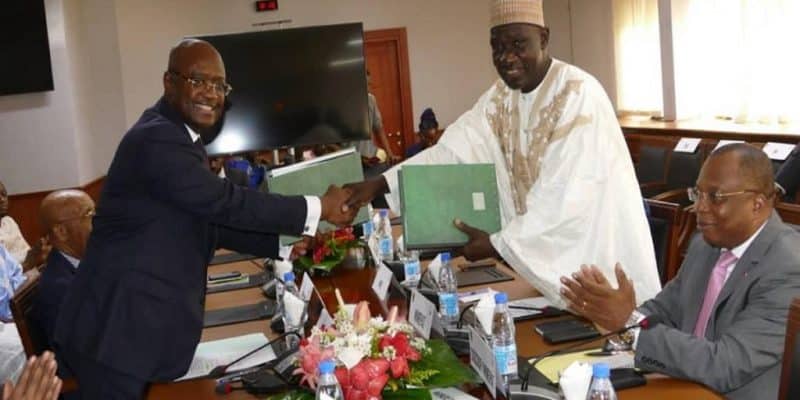The African Export-Import Bank (Afreximbank) is financing a rural electrification project worth 53 million euros (34.7 billion CFA francs) to be implemented in 200 localities in Cameroon. The initiative will enable the implementation of solar photovoltaic systems.
In Cameroon, darkness will soon be an old memory for 13 000 households. The African Export-Import Bank (Afreximbank) is lending 53 million euros (34.7 billion CFA francs) to the Cameroonian government for the construction of 87 solar photovoltaic micro power plants in 200 localities not connected to the national electricity grid. This “solid and dynamic” credit agreement was signed recently between Georges Elombi, the Executive Vice President of Afreximbank and Alamine Ousmane Mey, the Cameroonian Minister of the Economy, Planning and Regional Development (MINEPAT).
It is part of the third phase of the programme to electrify 1,000 localities with solar photovoltaic systems. To date, the project, implemented using technological solutions from the Chinese giant Huawei, has benefited 26,000 households in 350 Cameroonian villages, with an installed capacity of 24.2 MWp. Afreximbank’s financing focused on renewable energy should enable the Cameroonian authorities to increase the rate of access to electricity in rural areas, estimated at 25% by the World Bank in 2020, compared to 64.7% at the national level.
This Central African country, which has an installed capacity of around 1.6 GW produced from hydroelectric installations and thermal power stations, is increasingly relying on green solutions to achieve its energy objectives. It is in this context that the association Communes et villes unies du Cameroun (CVUC) has entered into a public-private partnership (PPP) with the French company Sunna Design for the deployment of 100,750 solar street lamps in several rural municipalities in the second half of 2022.
Read also-CAMEROON: BGFI guarantees €11 million for the Maroua and Guider solar power plants
As in Lomé in Togo, Dakar in Senegal and Durban in South Africa, the company based in Blanquefort in south-west France will use streetlights from its iSSL+ connected range. The agreement also provides for the construction of a factory to assemble these solar lanterns in the commune of Yaoundé 7 in order to promote “the transfer of technology necessary for the creation of local jobs”, according to Sunna Design.
Benoit-Ivan Wansi







